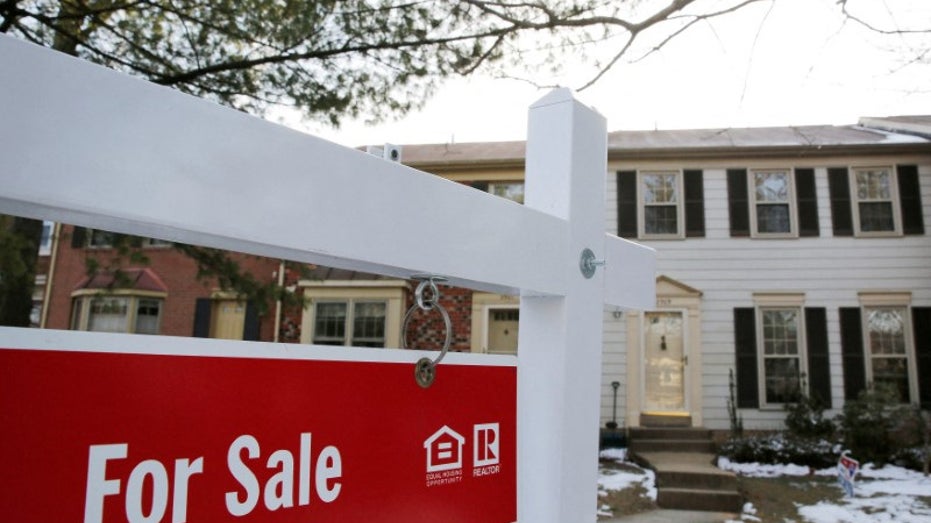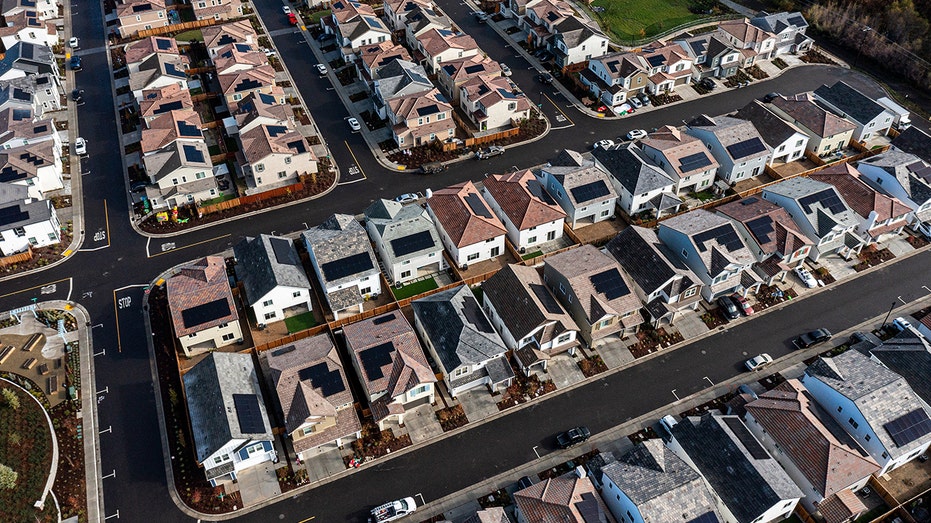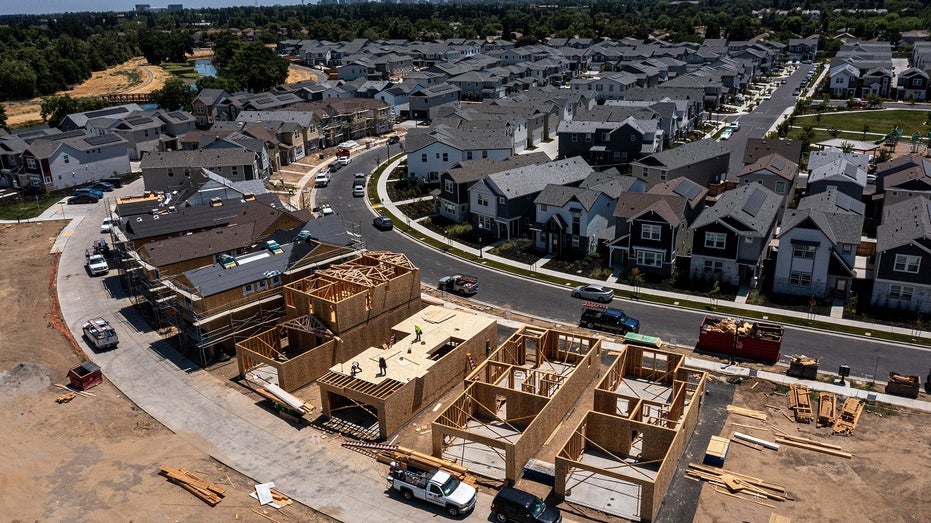Nation’s biggest builders are making houses smaller in shift toward affordable housing: Report
Median size of a new home being built in the US today is 4% smaller than it was last year
Housing will 'remain sticky for some time,' says Ken Mahoney
Mahoney Asset Management CEO Ken Mahoney weighs in on the upcoming Housing data release, artificial intelligence stocks and his economic outlook.
A new report from The Washington Post detailed how the U.S. is experiencing a "boom in smaller construction" as some of the nation’s most "powerful home builders" are making new homes that are smaller than they used to be.
The piece cited census data detailing this shrink, which puts the median new home built today at 2,179 square feet – 4% smaller than they were last year.
The Post noted this was the "lowest reading since 2010."
According to U.S. census bureau data cited in the article, 2015 saw the largest median new home sizes since the year 2000, the average being around 2,450 square feet.
WHY ARE GROCERIES STILL SO EXPENSIVE?

The Washington Post published a new report detailing how the nations top home builders are opting to build smaller homes than previously to account for the current housing crisis. (Reuters Photos)
This downsizing in new homes represents a "shift to more affordable housing," the outlet said, adding that building smaller homes has "helped bring down overall costs and contributed to a 6 percent dip in new-home prices in the same period."
Americans prefer smaller homes, like townhouses, which have become an increasingly popular housing option in recent years.
The Post cited data from the National Association of Home Builders, reporting that townhouses have accounted "for 1 in 5 new homes under construction at the end of 2023, a record high."
"To cut costs, companies are building smaller and taller, with fewer windows, cabinets and doors," the outlet said.
According to the paper, this downsizing is a "crucial first step toward addressing a critical shortage of starter homes," which first-time home buyers have been seeking and which have "contributed to inflation."
The piece quoted Bipartisan Policy Center director of housing and infrastructure Andy Winkler, who spoke to the cost benefits of this downsizing. "Even a slightly smaller home can be thousands of dollars cheaper — for both builders and buyers."
"This is a trend driven by just how unaffordable housing has become, with sky-high prices, rising interest rates and so few homes for sale," he added.

According to U.S. census data, builders are constructing the smallest homes in nearly 14 years. ( Photographer: David Paul Morris/Bloomberg via Getty Images / Getty Images)
The downsizing especially started trending after the COVID-19 pandemic. At the height of COVID, families with "extra pandemic savings" – benefiting from "rock-bottom interest rates" – sought larger homes.
"As a result, median home prices have jumped a whopping 28 percent in the past four years, to nearly $418,000. At the same time, mortgage rates have more than doubled to almost 7 percent, down slightly from a 23-year high reached in November," The Post noted, citing Goldman Sachs, which has recently disclosed that homes in the U.S. are less affordable than ever.
As such, builders are now starting to respond to the demand for smaller, more affordable homes, especially since building large homes as they did previously has become expensive for them.
Giving an example of this shift, the report stated, "D.R. Horton, the country’s largest home builder, sold more than 82,000 homes last year, most of them under $400,000 and to first-time buyers. Its lineup now starts at about 900 square feet."
It even noted how luxury home builders like Toll Brothers have focused on producing "lower-priced options," which are also cheaper and faster to build.
This is all a response to this housing crisis, especially for those seeking entry-level homes – prices for which "hit a record $243,000 last year," the Post said, quoting Redfin.
The rate at which these entry-level homes have grown in price has overtaken the increase in expense for luxury homes too.

Luxury home builders like Toll Brothers have focused on producing "lower-priced options," which are also cheaper and faster to build, The Washington Post reported. (David Paul Morris/Bloomberg via Getty Images / Getty Images)
GET FOX BUSINESS ON THE GO BY CLICKING HERE
Though this smaller new home trend seems to be a reason for hope for first-time homeowners, the outlet clarified that smaller homes only account for "a sliver of the overall housing market," and they tend to be "pricier than existing homes." So, they’re not even the best option for rookie buyers.
Additionally, the Post cited Winkler, stating, "Even if the shift holds, it would take years of sustained growth to build enough homes to satisfy demand."
Winkler also noted that Americans are still conditioned to think bigger houses are better.




















